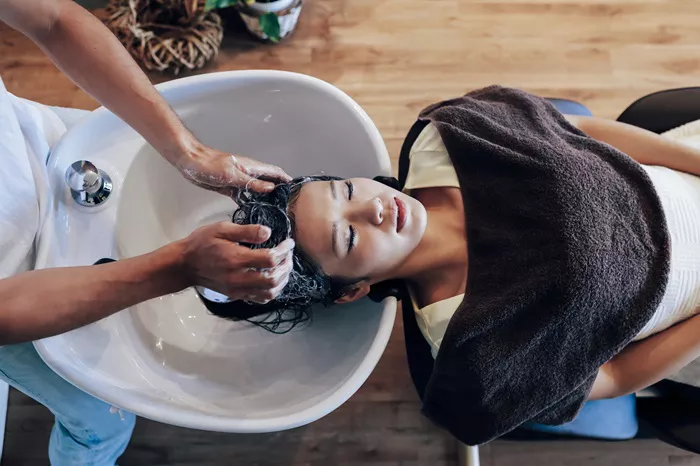A sensitive scalp can be a real challenge, impacting daily comfort and overall hair health. Those with this condition often experience itchiness, redness, and irritation. The right shampoo can make a significant difference in managing these symptoms and maintaining scalp health.
Understanding Sensitive Scalp
What Causes a Sensitive Scalp?
Several factors can contribute to a sensitive scalp, including:
Allergies: Reactions to ingredients in hair products can cause sensitivity.
Environmental Factors: Sun exposure, pollution, and harsh weather can irritate the scalp.
Overuse of Products: Frequent washing or use of strong products can strip the scalp of its natural oils.
Skin Conditions: Conditions such as eczema or psoriasis can exacerbate sensitivity.
Choosing the Right Shampoo for Sensitive Scalp
When selecting a shampoo for a sensitive scalp, consider the following factors:
Ingredients: Opt for shampoos with gentle, hypoallergenic ingredients.
pH Balance: A balanced pH helps maintain the natural acidity of the scalp.
Fragrance-Free: Avoid shampoos with strong fragrances that may cause irritation.
No Harsh Chemicals: Shampoos free from sulfates, parabens, and silicones are less likely to irritate.
Key Ingredients to Look For
1. Aloe Vera
Aloe vera is known for its soothing and moisturizing properties. It helps calm inflammation and provides relief from itching and redness. Look for shampoos containing pure aloe vera or aloe vera extracts.
2. Chamomile Extract
Chamomile has anti-inflammatory properties that can help reduce scalp irritation. It also has a calming effect on the skin, making it ideal for sensitive scalps.
3. Tea Tree Oil
Tea tree oil has natural antibacterial and antifungal properties. It helps keep the scalp clean and can reduce itchiness and irritation.
4. Oat Extract
Oat extract is gentle and soothing. It helps relieve dryness and itchiness, making it suitable for sensitive scalps.
5. Coconut Oil
Coconut oil is a natural moisturizer that helps nourish and hydrate the scalp. It can also reduce inflammation and irritation.
6. Glycerin
Glycerin is a humectant that draws moisture into the scalp. It helps maintain hydration and prevents dryness.
7. Panthenol
Panthenol, or vitamin B5, helps improve the moisture balance of the scalp. It has soothing properties that can alleviate irritation.
SEE ALSO: Does Frizzy Hair Mean Damaged Hair?
Avoiding Harmful Ingredients
1. Sulfates
Sulfates, such as sodium lauryl sulfate (SLS), are common in shampoos but can be harsh on sensitive scalps. They can strip natural oils and cause dryness and irritation.
2. Parabens
Parabens are preservatives used to extend the shelf life of products. They may cause allergic reactions and sensitivities in some individuals.
3. Silicones
Silicones can create a barrier on the scalp, leading to buildup and potential irritation. Opt for silicone-free shampoos for a gentler approach.
4. Artificial Fragrances
Fragrances can be irritating to sensitive scalps. Choose fragrance-free or naturally scented products to minimize irritation.
Top Shampoos for Sensitive Scalps
Here are some highly recommended shampoos for sensitive scalps:
1. Aveda Scalp Benefits Balancing Shampoo
This shampoo is designed to balance and soothe the scalp. It contains burdock root and echinacea to help calm irritation.
2. Vanicream Free & Clear Shampoo
Vanicream is known for its gentle formula, free from common irritants like sulfates and dyes. It is ideal for sensitive skin and scalps.
3. CeraVe Hydrating Shampoo
CeraVe’s hydrating shampoo contains ceramides and hyaluronic acid to help restore and maintain the scalp’s natural moisture barrier.
4. Eucerin DermoCapillaire Calming Urea Shampoo
This shampoo is enriched with urea and lactate to soothe and hydrate sensitive scalps. It is particularly suitable for those with dry or itchy scalp conditions.
5. Neutrogena T/Sal Therapeutic Shampoo
Neutrogena T/Sal is formulated with salicylic acid to help treat scalp conditions and reduce irritation. It is suitable for sensitive scalps prone to dandruff.
6. Kiehl’s Scalp Purifying Micellar Shampoo
This micellar shampoo uses a gentle cleansing formula to remove impurities without stripping the scalp. It helps maintain a balanced and healthy scalp.
7. Bioderma Node DS+ Anti-Dandruff Shampoo
Bioderma’s anti-dandruff shampoo is designed for sensitive scalps prone to flaking and irritation. It contains ingredients to soothe and reduce discomfort.
How to Use Shampoo for Sensitive Scalp
1. Patch Test
Before using a new shampoo, perform a patch test on a small area of your skin to ensure you do not have an allergic reaction.
2. Gentle Application
Apply the shampoo gently, massaging it into the scalp with your fingertips. Avoid vigorous scrubbing, which can aggravate sensitivity.
3. Rinse Thoroughly
Make sure to rinse the shampoo thoroughly to remove any residue that could contribute to irritation.
4. Follow Up with Conditioner
Use a conditioner formulated for sensitive scalps to help maintain moisture and protect the scalp from further irritation.
Additional Tips for Managing Sensitive Scalp
1. Avoid Hot Water
Washing your hair with hot water can increase sensitivity. Use lukewarm water to help reduce irritation.
2. Limit Washing Frequency
Overwashing can strip the scalp of its natural oils. Aim to wash your hair 2-3 times a week, or as needed.
3. Avoid Tight Hairstyles
Tight hairstyles can put stress on the scalp, leading to irritation. Opt for loose, comfortable styles.
4. Maintain a Healthy Diet
A balanced diet rich in vitamins and minerals supports overall scalp health. Include foods that promote hydration and reduce inflammation.
5. Consult a Dermatologist
If sensitivity persists or worsens, consult a dermatologist. They can help diagnose any underlying conditions and recommend appropriate treatments.
Conclusion
Choosing the right shampoo for a sensitive scalp involves understanding your specific needs and selecting products with gentle, soothing ingredients. By focusing on shampoos that are free from harsh chemicals and incorporating nourishing components, you can effectively manage scalp sensitivity and maintain healthy hair. Remember to follow a gentle hair care routine and consult with a professional if needed for optimal results.


